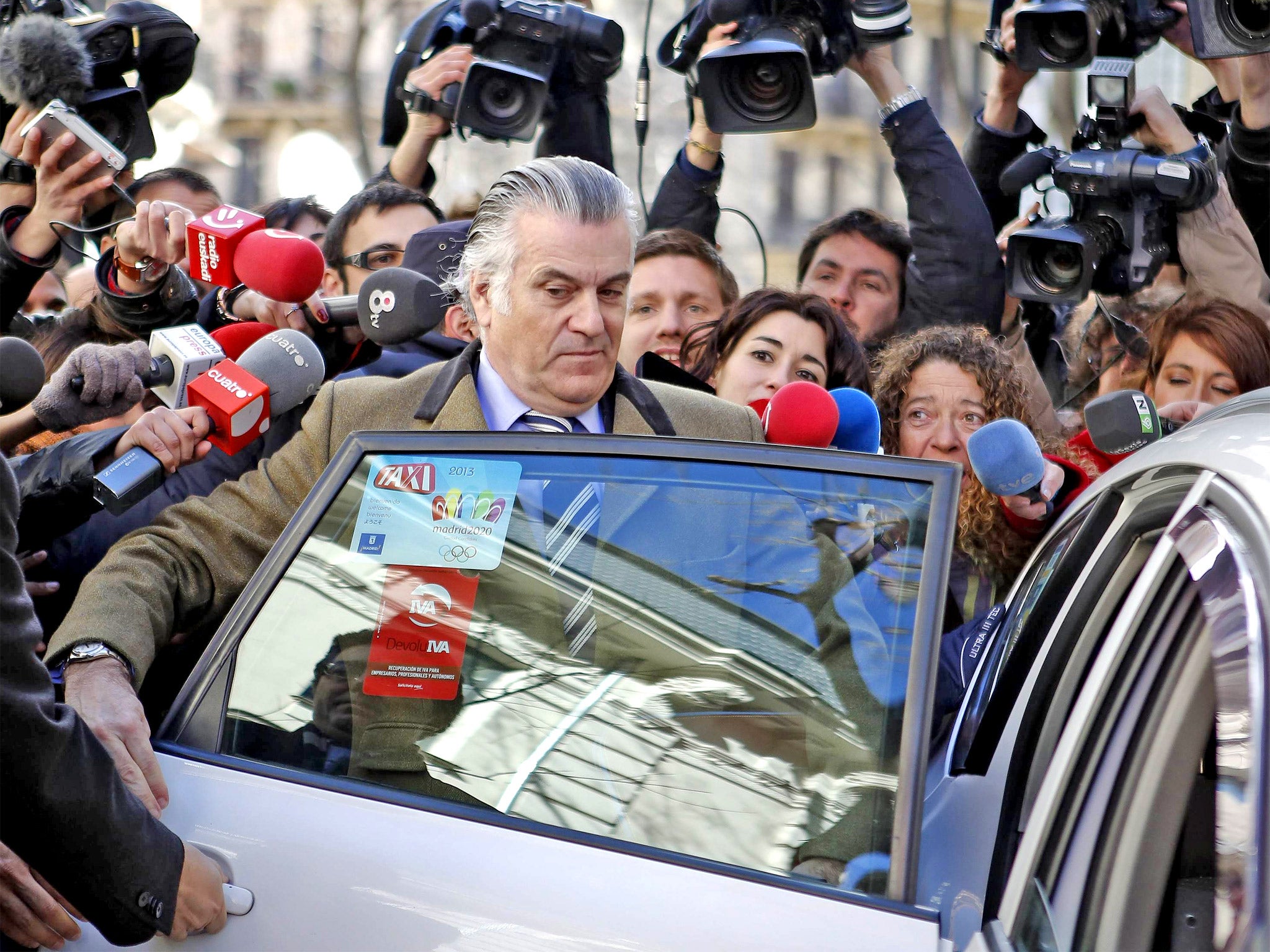Spanish party treasurer grilled as corruption scandal grows
Protesters yell 'thief' as former banker Luis Barcenas leaves after three-hour examination

Protesters booed the former treasurer of Spain’s Partido Popular (PP) party as he left the prosecutor’s office after being questioned over allegations of corruption that have rocked the country’s government.
Luis Barcenas, a former banker, is accused of involvement in the channelling of payments through secret accounts from managers of construction companies to PP party leaders, including the Prime Minister, Mariano Rajoy, who has faced calls from the opposition to resign over the allegations.
After being grilled for three hours by Spain’s anti-corruption prosecutor, protesters booed and yelled “thief” as Mr Barcenas left the Madrid court escorted by police. He has denied all the allegations.
Prominent PP members – including Mr Rajoy – have denied any wrongdoing and libel cases have been started against El País, the newspaper which published nearly two decades-worth of what it called “the PP treasurer’s secret accounts” last week.
The anti-corruption prosecutor also heard preliminary statements from other leading figures in the case, including Jorge Trias, a former PP legislator who has claimed irregular payments of what he called “envelopes with money” had been made to members of the party hierarchy.
Alvaro Lapuerta, who had preceded Mr Barcenas as the PP’s treasurer and who also denies any involvement, is due to be questioned today. Mr Barcenas also faces allegations in another financial scandal known as the “Gurtel case” in which he is charged with bribery, money laundering and tax evasion. An investigation is underway into his Swiss bank account, which contained €22m (£19m). Mr Barcenas claims it was legitimate business income.
The Gurtel case has intensified suspicions over the so-called “secret papers” – and increased public anger against a seemingly interminable wave of political corruption cases. Mr Rajoy’s awkward denial, saying “it is all untrue, except for some things,” hardly helped to clear what appear to be murky political waters.
More than 750,000 people have signed an online petition demanding that Mr Rajoy quit, a demand echoed by opposition leader Alfredo Perez Rubalcaba. Spain already has around 300 elected officials from different political parties tarnished by corruption investigations – around 80 of them involving mayors or ex-mayors. However, although Mr Rajoy’s approval rating had dropped to 19 per cent before the scandal broke last week, analysts believe that he will not be forced to resign.
That is not to say frustration with Mr Rajoy and his party is low. Anger at the political classes is steadily rising amongst a population struggling amid 26 per cent unemployment and a relentless series of public spending austerity measures. Figures published yesterday showed that the PP’s popularity had sunk to its lowest level since 2007.
Backlogs in Spain’s judicial system mean it could take years for the courts to decide whether criminal charges could be brought against Mr Rajoy. In a sign of tensions within the PP, a regional leader in Madrid, Esperanza Aguirre, has called for reforms to speed up the judicial process.
Meanwhile, the corruption allegations have opened up what markets analysts expect to be a period of volatility, with political uncertainty keeping bond yields flat.
Juan Rosell, president of Spain’s leading business community organisation, the CEOE, called the scandal “a catastrophe” that had come “just as we were improving our [international] image”.
Join our commenting forum
Join thought-provoking conversations, follow other Independent readers and see their replies
Comments
Bookmark popover
Removed from bookmarks